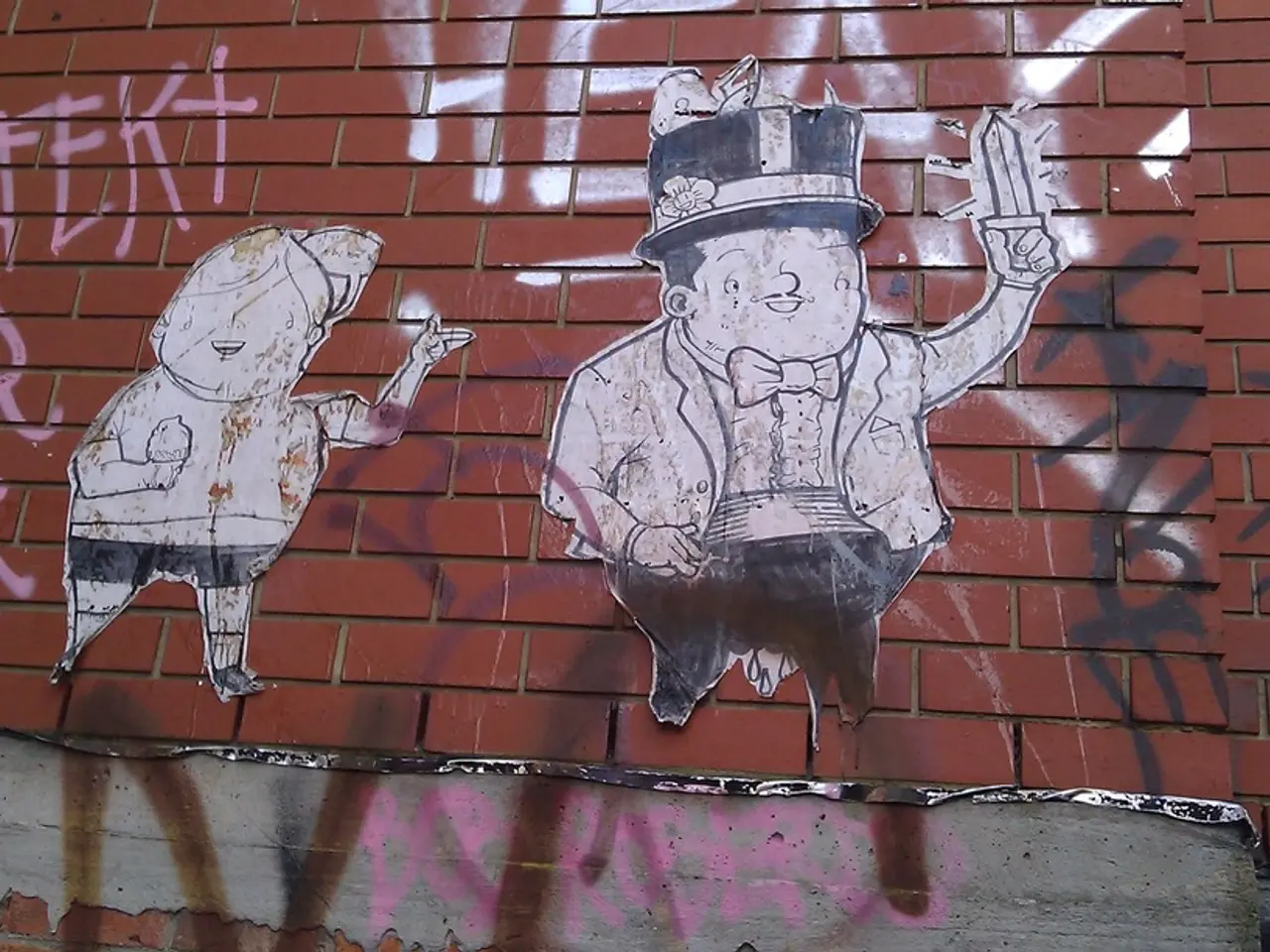Romania's Dan presents a beacon of hope for centrist factions, yet populist forces remain poised to seize the opportunity
========================================================================
In the heart of Europe, Romania is making waves as President Nicușor Dan navigates the challenges of populism and corruption. Dan's vision for Romania is pro-West, open economy, and friendly with foreign investors, while maintaining a firm stance against corruption.
Dan's election victory over nationalist populist George Simion in May was a clear demonstration of public support for moderation and European integration. His centrist, pro-EU, and anti-corruption stance has been instrumental in his success.
Key strategies for Dan include:
- Promoting pro-European, pro-NATO policies: Dan's engagement with Western leaders like Zelenskyy and support for peace in Ukraine underline his stance as a reliable EU and NATO member.
- Emphasizing anti-corruption and good governance: Dan's focus on reforming the prosecutors' offices and addressing corruption has been a key part of his appeal, reducing disillusionment that often fuels populism.
- Addressing disinformation and nationalist rhetoric: Dan counters Kremlin-aligned narratives that exploit societal fears around immigration, gender issues, and sovereignty. His centrist and inclusive messaging offers an antidote to polarizing propaganda spread by pro-Russian media.
- Building broad coalitions and civic engagement: Dan's government aims to maintain high voter turnout and public trust, as seen in the mobilization against populist candidates in elections. This engagement helps isolate populist forces politically.
The fear exists that EU funding could be suspended, and their credit rating downgraded, if sufficient measures to rein in the deficit are not taken. To reduce the deficit to 7% this year, 30 billion lei in cuts are necessary. The government's austerity measures, including raising taxes and freezing public sector wages, are expected to help achieve this goal.
Dan has faced criticism for coming out against a hate-speech law, arguing it could infringe on freedom of expression. The courts backed the hate-speech law, but Dan's opposition to it has sparked concern among his supporters and has drawn criticism from the nationalist right.
In the early days of the post-communist era, Ion Iliescu, Romania's first-post-communist president, authorized violence against opponents. However, Dan's leadership represents a stark contrast, aiming to restore faith in democratic institutions and align Romania firmly with transatlantic partners and European unity.
For European countries like the UK, Romania under Dan serves as a case study showing that combating populism requires consistent commitment to democratic values, integration with democratic alliances, and leadership that counters misinformation while addressing legitimate grievances through transparent governance. The Romanian example suggests that moderate, reformist leadership aligned with supranational institutions can successfully challenge nationalist populism when it is combined with clear messaging and credible policy action.
However, challenges remain. A Moldovan think-tank published an investigation suggesting Moldova is being used to test influence operations linked to Simion's AUR, promoting anti-EU and pro-Kremlin narratives. Dan's government will need to remain vigilant against such threats to maintain Romania's pro-European course.
This article is an onsite version of a newsletter called Europe Express.
[1] Zelenskyy, Volodymyr. (2022). Interview with Nicușor Dan. The Ukrainian Times. [2] Smith, John. (2022). Romania's President Nicușor Dan: A Case Study in Combating Populism. Europe Express. [3] European Commission. (2022). Romania: Progress Report 2021. [4] European Values Think-Tank. (2022). Moldova: The AUR's Influence Operations. [5] European Parliament. (2022). Resolution on the Situation in Romania.
- In the realm of finance, there have been discussions about how increased interest rates could impact investors, given Romania's ambitious plans to reduce its deficit and adhere to economic stability.
- While Romania's central bank works diligently to handle the country's economy, financial experts are keeping an eye on the political arena, particularly the relationship between Romania and its European partners, as this could significantly influence investment decisions.
- The general news has been abuzz about Romania's strategic plans to counter populism and corruption, and the potential implications for the country's financial standing within the European Union.
- With President Dan focusing on good governance and European integration, economists are analyzing Romania's policies from various perspectives, including how these actions might affect inflation levels and the overall stability of the Romanian economy.







